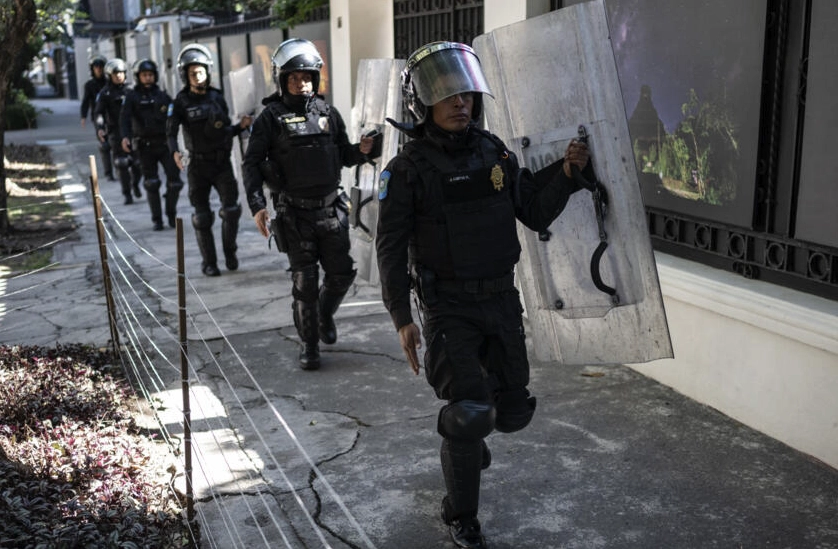International law is one of the significant advances of humanity and one of the most fragile. It is sustained by the principle of good faith between the parties and is the alternative to the “law of the strongest”. Diplomatic law has been a slow but sure conquest, based on hundreds of years of experience with ambassadors and the due consideration given to them in the receiving country.
The Vienna Convention on Diplomatic Relations of 1961 (entered into force in 1964) is accepted by the vast majority of the planet’s nations and is one of the considerable successes of International Law. Article 22 expressly states: “The premises of the mission shall be inviolable. The agents of the receiving State may not enter them without the consent of the head of the mission.” The action of the Ecuadorian government in invading without consent the Mexican embassy in Quito is a clear violation of the Vienna Convention and goes back countless years in international and diplomatic law.
To better exemplify the seriousness of the facts, it is worth remembering the very regrettable attack on the Chilean embassy in Costa Rica by an officer of the Costa Rican Public Force several years ago. At that time, despite the attack and the temptation on the part of the Costa Rican police to enter and try to neutralize the attacker, they did not do so until José Miguel Insulza — at that time Minister of the Interior of Chile and visiting Costa Rica — gave the authorization to enter. The order came four hours after the attack began. Costa Rica respected at all times the inviolability of the Chilean mission despite the urgency of the case.
Returning to the case of the violation of the Mexican diplomatic headquarters in Quito, as can be seen in numerous videos circulating, the Mexican diplomatic agent, in charge of overseeing his mission, was violated in his dignity and by force by the Ecuadorian police.
This is an express violation of Article 29 of the Vienna Convention, which states: “The person of a diplomatic agent shall be inviolable. He shall not be liable to any form of arrest or detention. The receiving State shall treat him with due respect and shall take all appropriate steps to prevent any attack on his person, freedom or dignity.”
The whole world should congratulate the aplomb and dignity of Roberto Canseco, who, as agent of the Mexican mission in Quito, defended at all times the integrity of the embassy and its occupants. His angry complaints after the events are consistent with the work of an excellent official who fully knows what is at stake.
But beyond the violations of the Vienna Convention, this case is even more serious for Latin America since it is in this region that diplomatic asylum was “invented”, which is not necessarily recognized in the rest of the world. Latin America is the region where, years before the promulgation of the Vienna Convention, enshrined the right to diplomatic asylum in the Caracas Convention of 1954.
Article 1 of the Caracas Convention states: “Asylum granted in legations, mar vessels and military camps or aircraft to persons being sought for political reasons or for political offenses shall be respected by the territorial State in accordance with the provisions of this Convention“.
There are those who, in a very daring manner, are resorting to the text of this convention to justify the Ecuadorian government’s actions, citing Article 3 which states that asylum will not be granted to those who “are accused or prosecuted in the form before competent ordinary courts and for common crimes, or are condemned for such crimes and by such courts…”.
Those who argue based on Article 3 did not read the following article which states, “It shall rest with the State granting asylum to determine the nature of the offense or the motives for persecution.” Although Mexico’s decision to grant diplomatic asylum to Jorge Glas may be questioned, the truth is that, according to the Caracas Convention, it is up to Mexico to determine whether the person is politically persecuted, not Ecuador.
The actions of the Noboa government not only undermine the good faith that should prevail in international relations and in International Law but also dynamite one of the greatest conquests that Latin America has contributed to International Law: the right to diplomatic asylum. This is particularly ironic when Ecuador granted asylum in its mission in London to Julian Assange for years, against the criteria of countries such as the United Kingdom or the United States (who require him to be tried).
The British do not recognize the right to diplomatic asylum as we do in Latin America, but they do recognize the inviolability of diplomatic headquarters as established in the Vienna Convention. What would Ecuador have done if the British forces had attacked its headquarters to capture Assange?
The actions against the Mexican embassy and the subsequent justifications of the Ecuadorian government are reprehensible and the countries of the region have done very well to raise their voices against such deplorable actions. Amid this reprehensible act, there remains at least the satisfaction that the Latin American countries continue to give value to diplomatic law and diplomatic asylum.
*Translated by Janaína Ruviaro da Silva from the original in Spanish.













